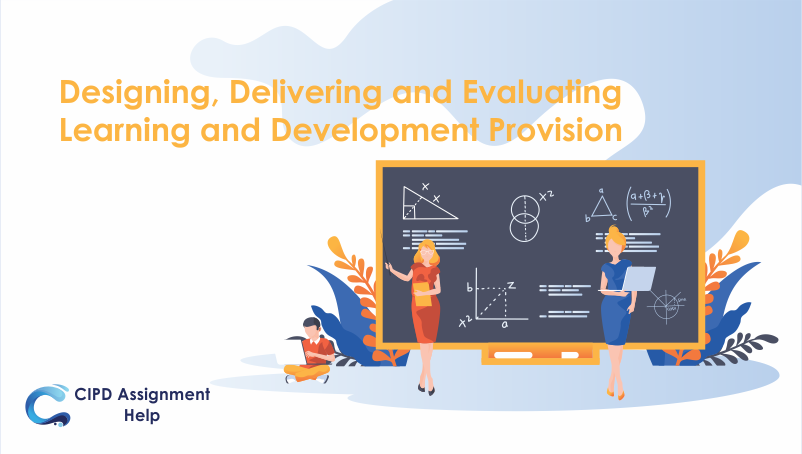The 7DDE Designing, Delivering and Evaluating Learning and Development Provision is a Level 7 Advanced Diploma in Human Resource Management optional module.
Purpose and Aim of the Module
The plan and delivery of learning and development often happen in a definite context. For that reason, the module endeavours to develop a critical understanding of the role and influence of several contextual factors. These contextual factors are all associated with the planning, delivery and evaluation of learning and development strategies and interventions.
A well-established body of knowledge and theory is put-up to facilitate the learning processes and the application in instructional design. The body of knowledge and theory also facilitates learning which in turn influences the design and delivery of learning and development of plans and events. As such, this established body of knowledge creates an essential component for this unit.
Essentially, the 7DDE module is designed and intended to develop the professional knowledge and skills that are essential ineffective performance in specialist roles. These specialist roles are related to the planning, delivery and evaluation of learning and development.
Therefore, this module requires learners to critically reflect on both theory and practice from an ethical and professional point of view. Moreover, the unit provides opportunities for application of learning and a continuous process of professional development.
Who is suitable for this Module?
Several human resource professionals are legible for this module. Those who are suitable for this unit:
- Are bestowed with the responsibility for HR decision making within an organisation at different levels more especially in operational, strategic and tactical levels.
- Are HR professionals in a team or HR functional management role who are seeking to boost and develop their professional competency and career.
- Are working in the HR department and want CIPD professional membership. Qualification for a CIPD professional membership is dependent on this and other core modules.
- Are not employed in any organisation but work as consultants to support organisations in achieving their goals and objectives.
- Have responsibilities and duties for the HR activities and functions within an organisation but don’t have a specialist function. This module will enable them to specialise in a particular function within HR.
What are the Learning Outcomes of this Module?
On completion of this unit, learners should be able to:
- Describe, assess and critically analyse both internal and external contextual factors that are impacting on the design, delivery and assessment of learning strategies and interventions in various organisations.
- Assess, pick and apply the wide range of strategies and processes for developing learning and development needs at group, team, occupational, individual, and organisational levels in partnership with relevant stakeholders.
- Critically assess a variety of learning and instructional design theories and principles as well as apply them to choose and justify ideal learning and development methods. They should also be able to select delivery channels with the engagement and support of various professionals and managers.
- Plan learning strategies and interventions to attain identified needs in a timely, feasible and affordable way.
- Validate skills of delivery and facilitation of learning through a variety of methods and for employees at various organisational levels as well as in an array of occupational groups.
- Plan and implement suitable evaluations methods to assess the attainment and effectiveness of learning strategies and interventions.
- Conduct themselves ethically and professionally with an illustrated commitment to equality of opportunities and diversity in planning and delivering of learning and development as well as to continuous individual and professional development.
What is the Assessment Criteria?
Learners are assessed through a variety of methods to ensure that the learning outcomes are met in a manner that enhances their learning experiences. As such, 50% of the module learning outcomes is assessed through summative assessment. The remaining learning outcomes are assessed via teaching, learning and formative assessment activities. These activities may include:
- Case studies
- Assessments
- Group and individual presentations
- Reports
- Time constrained tests
- Projects
- Examinations
- Viva Voce
Moreover, a competency-based assessment may be used in centres that are approved for this method of assignment. However, they must have occupationally competent assessors. They must also choose approved activities from CIPD Assessment Bank or design their own.
Similarly, all the centre-marked assessments must be subject to external moderation to ensure standards are judged comparatively against the internal and external benchmarks.



